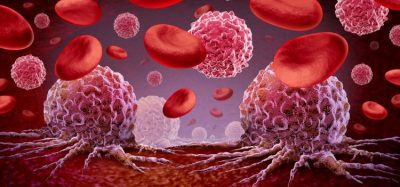Omicron prompts FDA to restrict use of specific antibodies
Posted: 26 January 2022 | European Pharmaceutical Review | No comments yet
Based on the latest data, and Omicron’s current dominance in the US, the FDA has announced two monoclonal antibody treatments are not authorised for use in any US states, territories and jurisdictions at this time.


The US Food and Drug Administration (FDA) has revised the authorisations for two monoclonal antibody treatments – bamlanivimab and etesevimab (administered together) and REGEN-COV (casirivimab and imdevimab).
These treatments are highly unlikely to be active against the Omicron variant, according to the latest data. The FDA is now recommending use of these treatments is limited to only when the patient is likely to have been infected with, or exposed to, a variant that is susceptible to these treatments.
Cases of the Omicron variant are currently very high in the US, with data from the Centers for Disease Control and Prevention (CDC) estimating that the Omicron variant of SARS-CoV-2 accounts for more than 99 percent of cases there (as of 15 January).
Monoclonal antibodies are laboratory-made proteins that mimic the immune system’s ability to fight off harmful pathogens such as viruses, like SARS-CoV-2 – the virus that causes COVID-19.
The decision to not authorise these treatments at this time avoids exposing patients to side effects such as injection site reactions or allergic reactions, which can be potentially serious, from specific treatment agents that are not expected to provide benefit to patients who have been infected with or exposed to the Omicron variant.
The NIH COVID-19 Treatment Guidelines Panel, an independent panel of national experts, recently recommended against the use of bamlanivimab and etesevimab (administered together) and REGEN-COV (casirivimab and imdevimab) because of markedly reduced activity against the Omicron variant and because real-time testing to identify rare, non-Omicron variants is not routinely available.
Importantly, there are several other therapies – Paxlovid, sotrovimab, Veklury (remdesivir) and molnupiravir – that are expected to work against the Omicron variant, and that are authorised or approved to treat patients with mild-to-moderate COVID-19 who are at high risk for progression to severe disease, including hospitalisation or death.
The FDA notes, however, that authorised treatments are not a substitute for vaccination in individuals for whom COVID-19 vaccination and a booster dose are recommended.
The FDA is continuing to review emerging data on all COVID-19 therapies related to the potential impact of variants and revise the authorisations further as appropriate to ensure healthcare providers have an effective arsenal of treatments for patients.
In the future, if patients in certain geographic regions are likely to be infected or exposed to a variant that is susceptible to bamlanivimab and etesevimab (administered together) and REGEN-COV (casirivimab and imdevimab), then use of these treatments may be authorised in these regions.
Related topics
Antibodies, Biologics, Drug Targets, Regulation & Legislation, Therapeutics, Viruses
Related organisations
US Centers for Disease Control and Prevention (CDC), US Food and Drug Administration (FDA)









